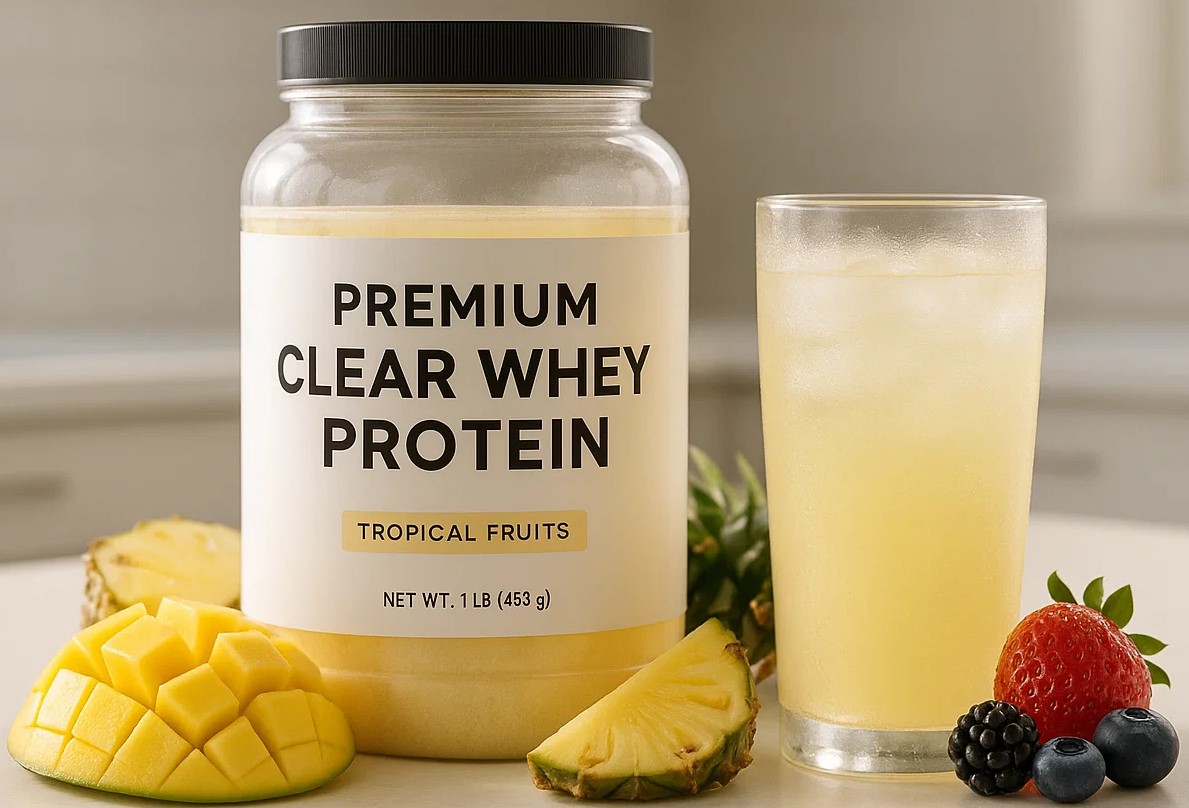Multivitamins & Modern India: Essential Guide for Your Family Needs

Strong 8k brings an ultra-HD IPTV experience to your living room and your pocket.
Introduction — Why This Matters Now
Nutrition conversations in India are changing fast. More people are thinking beyond calories and protein; they're asking whether their daily diet actually supplies all essential micronutrients. Multivitamin tablets used to be “something old people took” — now they're part of a preventive health toolkit for busy urban adults, students, mothers, and aging parents.
The India dietary supplements market is growing rapidly, with multivitamins taking a major share — and this is driven by rising health awareness and lifestyle changes. Brands that prioritize clean labels, transparent dosing, and evidence-based formulas are earning trust. Only What's Needed was built to meet that standard.
Who Actually Needs a Multivitamin? (And Who Doesn't)
Not everyone needs a daily multivitamin. Multivitamins are intended to fill dietary gaps, not replace whole foods. Here's a practical breakdown.
Clear beneficiaries
-
People with restricted diets (strict vegetarians or those on calorie-restricted plans).
-
Busy professionals and shift-workers who skip meals and miss variety.
-
Older adults with reduced nutrient absorption.
-
Pregnant/lactating women (but only specific prenatal formulas under doctor supervision).
-
People recovering from illness or undergoing treatments that impair appetite.
When multivitamins are overkill
-
Young healthy adults who eat a balanced, varied diet regularly.
-
People already meeting RDAs via food — whole foods are primary.
-
Those using multiple single-vitamin supplements without guidance (risk of excessive dosing).
The Science: What Multivitamins Actually Do
Multivitamin tablets provide a base of essential vitamins and minerals — vitamins A, C, D, several B-vitamins (including biotin), iron (if needed), zinc, and sometimes trace minerals. Their value comes from a few evidence-backed effects:
-
Bridging shortfalls: Where diets are consistently low in certain micronutrients (e.g., vitamin D, B12 in vegetarians), multivitamins help close the gap.
-
Support for immune function and energy metabolism: B vitamins and vitamin D play measurable roles.
-
Public-health impact: Population-level fortification and supplementation programs reduce deficiency-related disease. PMC
Quick stat: The global vitamin supplements market was estimated at roughly USD 51–192 billion depending on definitions and sources (2021–2024 estimates), with the vitamin/mineral segment growing consistently. India's vitamin/mineral demand is expanding quickly as part of the overall dietary supplements surge.
India Snapshot: Market Size & Consumer Trends
India's dietary supplements market is expanding fast — analysts report market values ranging across sources (reflecting differing definitions), but all point to rapid growth driven by urbanization, increased disposable income, and preventive health trends. For example, one industry analysis estimates the India dietary supplements market at USD 5.17 billion in 2024, with strong projected CAGR into the next decade. Multivitamins and vitamin products are among the largest subsegments.
Implication for families: accessibility and product variety have increased, but so has noise. That makes transparent brands more important than ever.
Comparison Table: Multivitamin Tablets vs Whole Foods vs Single-Vitamin Supplements
| Feature | Multivitamin Tablets | Whole Foods (fruits/veg/dairy) | Single-vitamin Supplements |
|---|---|---|---|
| Nutrient breadth | Broad, curated blend | Broadest, includes non-nutrients (fiber, phytonutrients) | Narrow, high-dose for one nutrient |
| Bioavailability | Variable (depends on form) | Often higher (food matrix helps absorption) | High for targeted correction |
| Convenience | Very high | Low—requires planning | High for specific deficiencies |
| Risk of excess | Moderate (if stacked with others) | Low | High if misused |
| Best use case | Daily insurance for busy adults | Primary source of nutrients | Corrective therapy (e.g., iron for anemia) |
“One multivitamin suits everyone”
Not true. Formulations should reflect age, sex, physiological state (pregnancy), and dietary preferences. That's why reputable brands publish targeted formulas (men/women/age-specific) with clear dosing.
“Too many vitamins are harmless”
Some vitamins/minerals (like vitamin A, iron) can be harmful in excess. Avoid stacking multiple high-dose supplements unless guided by blood tests and a clinician.
How Only What's Needed Designs Multivitamin Tablets (The Clean-Label Approach)
Only What's Needed builds products rooted in three principles:
-
Transparency — full label disclosure, no “proprietary blends.”
-
Science-first dosing — each nutrient is dosed towards evidence-based needs (not flashy megadoses).
-
Clean ingredients — minimal excipients, no unnecessary colors or fillers; third-party lab testing for identity and purity.
This is consistent with the label-forward, evidence-first movement that Food Pharmer and other transparency advocates champion. That's the brand's position in practice and communications. (Internal link: How We Test Our Supplements).
Practical Checklist: How Families Should Choose a Multivitamin (Step-by-Step)
-
Check the label — Are all vitamins/minerals listed with amounts (mg/µg/percent RDA)?
-
Match to needs — Look for age/gender-specific formulations. Pregnant women need prenatal formulas.
-
Avoid megadoses — Unless prescribed, avoid formulas with >100% RDA for multiple nutrients.
-
Certification — Look for FSSAI registration (India) and third-party testing seals where available.
-
Ingredient quality — Prefer common bioavailable forms (e.g., methylcobalamin for B12 if vegetarian; vitamin D3 over D2).
-
Transparency — No proprietary blends. No hidden fillers.
-
Consult — For children, pregnant women, or chronic conditions, consult a healthcare professional.
Suggested internal links: “Which Multivitamin is Right for Me?” and “How to Read Supplement Labels”.
Statistics & Evidence: Stronger Claims with Numbers
-
India dietary supplements market: estimated at USD 5.17 billion (2024) with strong projected growth. Grand View Research
-
Global vitamin supplements market: multi-billion-dollar industry (estimates ~USD 51–192 billion depending on scope), showing sustained expansion as preventive healthcare grows. PMCPrecedence Research
-
Research consensus (sport & nutrition): targeted supplementation can support recovery, performance, and reduce deficiency risk when used appropriately. The International Society of Sports Nutrition emphasizes protein and nutrient timing, but also supports evidence-informed supplementation. PubMed
Comparison: Multivitamins vs. Single-Nutrient Supplements vs Functional Foods
When to pick a multivitamin: you want broad coverage, convenience, and daily insurance.
When to pick a single-nutrient supplement: blood-test confirmed deficiency (iron, B12, vitamin D).
When to focus on foods: where possible — whole foods deliver fiber and phytochemicals beyond vitamins.
Keyword-Rich FAQ (At least 8 questions)
Q1: Are multivitamin tablets safe for daily use?
Yes, quality multivitamin tablets formulated at or near RDA levels are safe for most adults. Avoid stacking with other high-dose supplements unless advised.
Q2: How do I choose the best multivitamin in India?
Look for clear labeling, FSSAI registration, appropriate dosing for your life stage, and third-party testing. Only What's Needed publishes batch test reports and ingredient sources on product pages.
Q3: Can multivitamins replace a balanced diet?
No. Multivitamins are a supplement, not a substitute for whole foods. Prioritize varied diets and use multivitamins to fill gaps.
Q4: Which multivitamin is best for vegetarians?
Choose a formula that includes B12 (methylcobalamin), perhaps higher iron if menstruating, and vitamin D3 (vegan or non-vegan variants labeled clearly).
Q5: Do multivitamins cause side effects?
Most people tolerate multivitamins well. Occasionally, high iron doses can cause gastric upset. If you have medical conditions, check with your doctor.
Q6: Can children take multivitamin tablets?
Formulas exist specifically for children; dosing should follow age guidance. Avoid adult tablets for kids.
Q7: Will multivitamins help with energy/fatigue?
They can help if fatigue is due to micronutrient deficiency (e.g., iron, B12). But underlying causes should be checked.
Q8: How long should I take a multivitamin before seeing benefits?
Some effects (like improved energy) may appear in weeks if deficiency existed; preventive benefits are long-term.
Authoritative Outbound Links & Further Reading
-
Global dietary supplements overview — National / peer-reviewed review. PMC
-
India dietary supplements market — Grand View Research (India market insights). Grand View Research
-
Multivitamin market & forecasts — Precedence Research. Precedence Research
-
Sports nutrition position stand (protein & supplementation context) — ISSN. PubMed
(Use these to back content claims and strengthen user confidence.)
Internal Linking Suggestions (to boost SEO on Only What's Needed)
Use these anchor texts linking to actual site pages:
-
“Clear Whey vs Regular Whey” → /blog/clear-whey-vs-regular
-
“How to Read a Supplement Label” → /blog/read-supplement-label
-
“Which Multivitamin Is Right For Me?” → /blog/which-multivitamin
-
“Our Third-Party Test Reports” → /lab-results
Conclusion — A Practical, Transparent Approach to Daily Nutrition
Multivitamins are not magic, but they are a practical tool in modern life when used properly. For many Indians juggling busy schedules and uneven diets, a well-formulated multivitamin tablet can act as reliable, affordable nutritional insurance.
At Only What's Needed, we build multivitamin tablets to be transparent, responsibly dosed, and tested — supporting everyday health without unnecessary extras. Our stance: prioritize food first, use evidence-based supplements second, and always choose brands that publish labels and lab data openly.
Call-to-Action (Conversion-Focused)
Looking for a no-nonsense multivitamin that's made for Indian needs? Explore Only What's Needed multivitamin tablets — clean labels, third-party testing, and formulas designed for real life.
Shop now: Only What's Needed — Multivitamins
Recommended reseller list: Amazon India, Tata 1mg, Flipkart Health Hub, and select pharmacies (link to retailer page).
Note: IndiBlogHub features both user-submitted and editorial content. We do not verify third-party contributions. Read our Disclaimer and Privacy Policyfor details.







